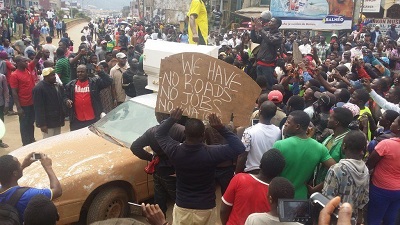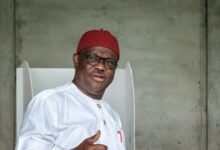
A rights group has criticised the “slow pace” and other alleged flaws of an ongoing trial into the massacre of 21 civilians killed two years ago in Ngarbuh, Cameroon.
An eyewitness who escaped the attack on February 14, 2020, by running into the bush told BBC Newsday that he had returned to find that victims had been shot and their bodies burnt, then dumped in at least three mass graves.
He said other survivors saw the attackers, describing them as “wearing military uniforms”.
The Cameroonian government initially denied allegations that the military was behind the attack, but an inquiry was launched weeks later following international outcry, and in a U-turn, the government said its forces did bear some responsibility.
Those now on trial are two soldiers, a gendarme, a former separatist fighter, and 17 ethnic-Fulani vigilantes who remain at large, Human Rights Watch (HRW) said.
The rights group alleges that during the trial,” the only witnesses so far did not see the killings and claimed the victims were separatist fighters”.
It also argues that the court being 450 km (279 miles) from the victims’ families’ homes means they do not have reasonable access, and claims that the presiding judge has a conflict of interests.
The Cameroonian government has not responded to the complaints outlined in HRW latest report.
The Red Dragons, Tigers and Ambazonia Defence Forces (ADF) – these are just some of the armed groups which have sprung up to fight for independence in English-speaking parts of Cameroon, posing a major security threat to Sunday’s elections in which President Paul Biya, 85, was seeking to extend his 36-year rule.
In the absence of reliable opinion polls, it is impossible to gauge the level of their support but the authorities’ brutal crackdown has only pushed more of the local population into the arms of the separatists, analysts say.
The militias, formed in the past 12 months, have made many small towns and villages in the two main Anglophone regions, the North-West and South-West, “ungovernable”, something unimaginable just a few years ago, Nigeria-based Cameroon analyst, Nna-Emeka Okereke, told the BBC.
“They probably have 500 to 1,000 active fighters, but more importantly they have the morale and determination to fight for the independence of what they call Ambazonia state,” he said. -BBC






